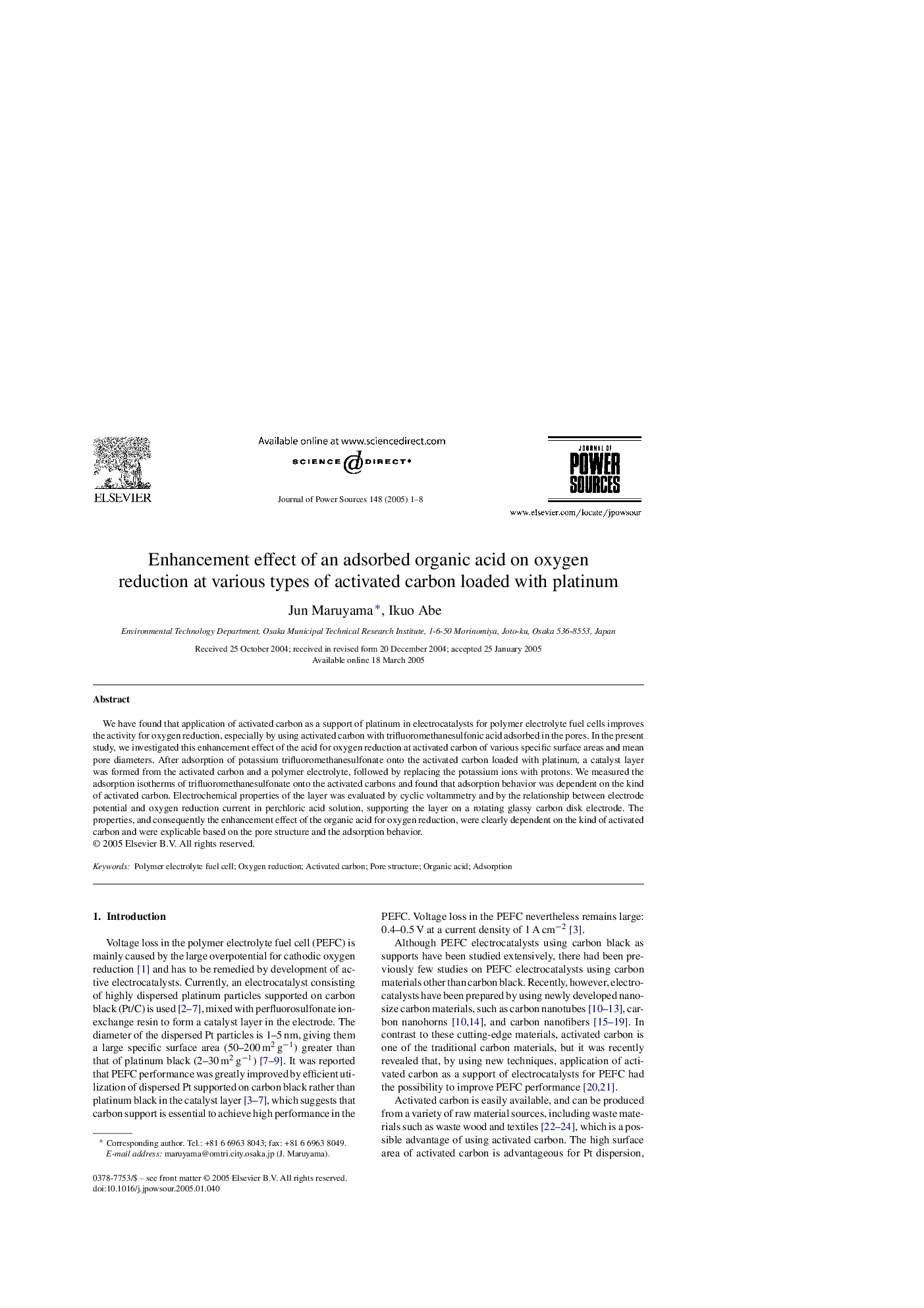| Article ID | Journal | Published Year | Pages | File Type |
|---|---|---|---|---|
| 9760216 | Journal of Power Sources | 2005 | 8 Pages |
Abstract
We have found that application of activated carbon as a support of platinum in electrocatalysts for polymer electrolyte fuel cells improves the activity for oxygen reduction, especially by using activated carbon with trifluoromethanesulfonic acid adsorbed in the pores. In the present study, we investigated this enhancement effect of the acid for oxygen reduction at activated carbon of various specific surface areas and mean pore diameters. After adsorption of potassium trifluoromethanesulfonate onto the activated carbon loaded with platinum, a catalyst layer was formed from the activated carbon and a polymer electrolyte, followed by replacing the potassium ions with protons. We measured the adsorption isotherms of trifluoromethanesulfonate onto the activated carbons and found that adsorption behavior was dependent on the kind of activated carbon. Electrochemical properties of the layer was evaluated by cyclic voltammetry and by the relationship between electrode potential and oxygen reduction current in perchloric acid solution, supporting the layer on a rotating glassy carbon disk electrode. The properties, and consequently the enhancement effect of the organic acid for oxygen reduction, were clearly dependent on the kind of activated carbon and were explicable based on the pore structure and the adsorption behavior.
Keywords
Related Topics
Physical Sciences and Engineering
Chemistry
Electrochemistry
Authors
Jun Maruyama, Ikuo Abe,
